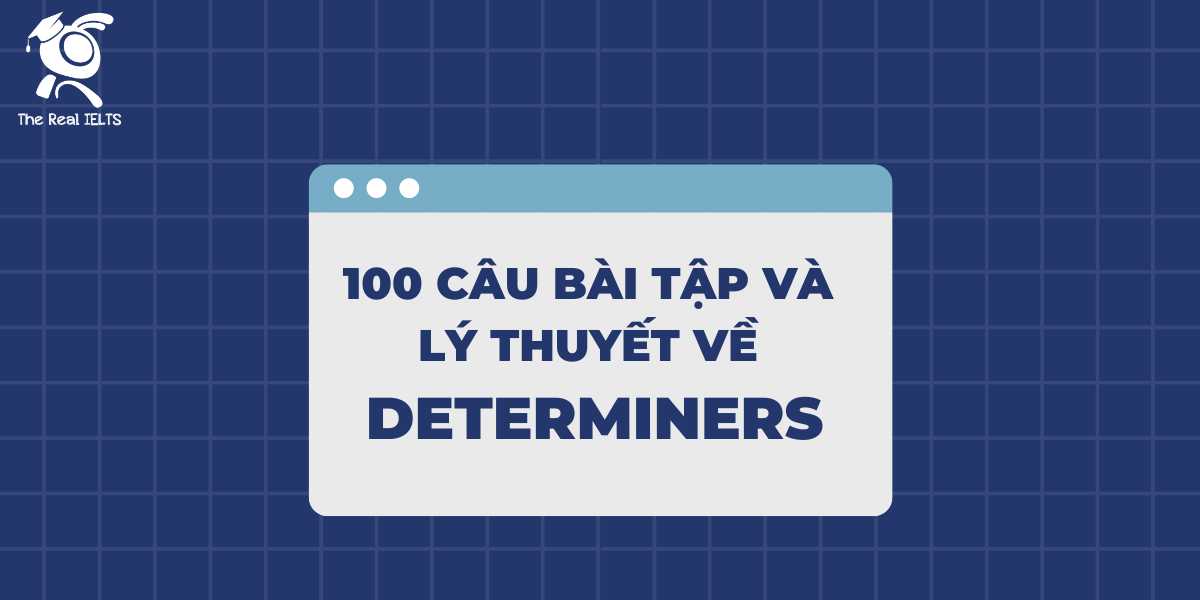100 ví dụ hỏi và trả lời về bác sĩ
Đọc thêm: 101 Bài Tiếng Anh Giao Tiếp Cơ Bản Full
General Questions about Doctors
- Q: What does a doctor do?
A: A doctor diagnoses, treats, and prevents illnesses to help patients maintain good health. - Q: What is the difference between a doctor and a physician?
A: A doctor is a general term for someone with a medical degree, while a physician specifically treats patients, often specializing in certain fields. - Q: How many years does it take to become a doctor?
A: It typically takes 7-12 years, including medical school, residency, and sometimes specialization. - Q: What is a general practitioner?
A: A general practitioner (GP) is a doctor who treats a wide range of common illnesses and provides primary care. - Q: What is a specialist doctor?
A: A specialist doctor focuses on a specific area of medicine, like cardiology or neurology. - Q: What tools do doctors use?
A: Doctors use tools like stethoscopes, thermometers, blood pressure monitors, and diagnostic machines. - Q: Why do doctors wear white coats?
A: White coats symbolize professionalism, cleanliness, and authority in the medical field. - Q: What is a stethoscope used for?
A: A stethoscope is used to listen to a patient’s heart, lungs, and other body sounds. - Q: What is a medical license?
A: A medical license is a certification that allows a doctor to legally practice medicine. - Q: Can doctors treat themselves?
A: Doctors can, but it’s generally advised against due to bias in self-diagnosis.
Education and Training
- Q: What degree do doctors need?
A: Doctors typically need a medical degree, such as an MD (Doctor of Medicine) or DO (Doctor of Osteopathy). - Q: What is medical school like?
A: Medical school involves rigorous study of anatomy, physiology, pharmacology, and clinical practice. - Q: What is a residency program?
A: A residency is a period of supervised training where doctors practice medicine after medical school. - Q: How long is a residency program?
A: Residency programs typically last 3-7 years, depending on the specialty. - Q: What is a fellowship in medicine?
A: A fellowship is advanced training in a medical subspecialty after residency. - Q: Do doctors need to keep learning?
A: Yes, doctors must continue education to stay updated on medical advancements. - Q: What exams do doctors take to practice?
A: In the U.S., doctors take the USMLE (United States Medical Licensing Examination) or similar exams. - Q: Can a doctor practice in another country?
A: Yes, but they often need to pass local licensing exams and meet country-specific requirements. - Q: What is a board-certified doctor?
A: A board-certified doctor has passed additional exams in their specialty, proving expertise. - Q: What is the Hippocratic Oath?
A: The Hippocratic Oath is a pledge doctors take to uphold ethical standards in medicine.
Types of Doctors
- Q: What does a pediatrician do?
A: A pediatrician specializes in treating children and adolescents. - Q: What is a cardiologist?
A: A cardiologist is a doctor who treats heart and blood vessel conditions. - Q: What does a dermatologist treat?
A: A dermatologist treats skin, hair, and nail conditions. - Q: What is an oncologist?
A: An oncologist specializes in diagnosing and treating cancer. - Q: What does a neurologist do?
A: A neurologist treats disorders of the nervous system, like epilepsy or Parkinson’s disease. - Q: What is a psychiatrist?
A: A psychiatrist is a doctor who treats mental health disorders. - Q: What does a surgeon do?
A: A surgeon performs operations to treat injuries or diseases. - Q: What is an anesthesiologist?
A: An anesthesiologist administers anesthesia and monitors patients during surgery. - Q: What does an obstetrician do?
A: An obstetrician cares for pregnant women and delivers babies. - Q: What is a gastroenterologist?
A: A gastroenterologist treats digestive system disorders.
Visiting a Doctor
- Q: When should I visit a doctor?
A: Visit a doctor for illness, injury, routine checkups, or persistent symptoms. - Q: How do I make a doctor’s appointment?
A: Call the doctor’s office or use an online booking system to schedule a visit. - Q: What should I tell the doctor during a visit?
A: Share your symptoms, medical history, and any medications you’re taking. - Q: Why do doctors ask about medical history?
A: Medical history helps doctors diagnose conditions and plan treatments. - Q: What is a physical exam?
A: A physical exam is a routine checkup to assess overall health. - Q: Why do doctors check blood pressure?
A: Blood pressure checks help detect heart or circulation problems. - Q: What is a prescription?
A: A prescription is a doctor’s written order for medication or treatment. - Q: Can I ask my doctor questions?
A: Yes, always ask questions to understand your health and treatment options. - Q: What is a second opinion?
A: A second opinion is consulting another doctor to confirm a diagnosis or treatment plan. - Q: How do I prepare for a doctor’s visit?
A: List symptoms, bring medical records, and note any medications.
Doctor-Patient Relationship
- Q: Why is trust important between a doctor and patient?
A: Trust ensures open communication and better treatment outcomes. - Q: Can I change my doctor?
A: Yes, you can switch doctors if you’re uncomfortable or dissatisfied. - Q: What is patient confidentiality?
A: Patient confidentiality means doctors keep your health information private. - Q: Can a doctor refuse to treat a patient?
A: Yes, but only under specific circumstances, like ethical conflicts, except in emergencies. - Q: How do doctors communicate with patients?
A: Doctors communicate through consultations, emails, or secure online portals. - Q: What is informed consent?
A: Informed consent is when a patient agrees to treatment after understanding its risks and benefits. - Q: Why do doctors take notes during visits?
A: Notes help doctors track your health, diagnoses, and treatments. - Q: Can I request my medical records?
A: Yes, patients have the right to access their medical records. - Q: What is telemedicine?
A: Telemedicine is when doctors consult patients via phone or video calls. - Q: How do doctors handle emergencies?
A: Doctors prioritize emergencies, providing immediate care or referring to specialists.
Medical Procedures and Treatments
- Q: What is surgery?
A: Surgery is a medical procedure involving incisions to treat conditions. - Q: What is a biopsy?
A: A biopsy is a procedure where tissue is taken for testing, often to diagnose cancer. - Q: Why do doctors order blood tests?
A: Blood tests help diagnose diseases, monitor health, or check organ function. - Q: What is an X-ray?
A: An X-ray is an imaging test to view bones and internal structures. - Q: What is an MRI scan?
A: An MRI scan uses magnetic fields to create detailed images of organs and tissues. - Q: What is chemotherapy?
A: Chemotherapy is a treatment using drugs to kill cancer cells. - Q: What is physical therapy?
A: Physical therapy helps patients recover movement and strength after injury or surgery. - Q: What are antibiotics?
A: Antibiotics are medications used to treat bacterial infections. - Q: Why do doctors prescribe painkillers?
A: Painkillers are prescribed to relieve pain from injuries or medical conditions. - Q: What is a vaccine?
A: A vaccine is a shot that helps prevent certain diseases by building immunity.
Challenges and Responsibilities
- Q: Do doctors work long hours?
A: Yes, doctors often work long shifts, especially during residency or in hospitals. - Q: What is a doctor’s biggest challenge?
A: Balancing patient care, staying updated, and managing stress are major challenges. - Q: Do doctors make mistakes?
A: Yes, doctors can make mistakes, but systems like peer reviews help minimize errors. - Q: How do doctors handle stress?
A: Doctors manage stress through exercise, hobbies, or professional support. - Q: What is medical malpractice?
A: Medical malpractice is when a doctor’s negligence harms a patient. - Q: Do doctors perform research?
A: Some doctors conduct research to advance medical knowledge and treatments. - Q: What is a clinical trial?
A: A clinical trial is a study to test new treatments or drugs. - Q: How do doctors stay updated on new treatments?
A: Doctors attend conferences, read journals, and take continuing education courses. - Q: What is a doctor’s role in public health? Partial**
A: Doctors promote public health through education, vaccinations, and disease prevention programs. - Q: Do doctors work in teams?
A: Yes, doctors often collaborate with nurses, specialists, and other healthcare professionals.
Special Situations
- Q: What is an emergency room doctor?
A: An ER doctor treats urgent and life-threatening conditions in the emergency room. - Q: What does a doctor do during a pandemic?
A: Doctors treat patients, manage outbreaks, and educate the public on prevention. - Q: Can doctors work in rural areas?
A: Yes, many doctors serve in rural areas to provide care where it’s needed. - Q: What is a military doctor?
A: A military doctor provides medical care to soldiers and their families. - Q: Do doctors volunteer abroad?
A: Yes, many doctors volunteer in global health programs to help underserved communities. - Q: What is a sports medicine doctor?
A: A sports medicine doctor treats injuries related to sports and physical activity. - Q: What does a forensic doctor do?
A: A forensic doctor investigates causes of death, often for legal purposes. - Q: What is a travel medicine doctor?
A: A travel medicine doctor advises on health risks and vaccinations for travelers. - Q: What is palliative care?
A: Palliative care focuses on improving quality of life for patients with serious illnesses. - Q: What is a hospitalist?
A: A hospitalist is a doctor who specializes in caring for hospitalized patients.
Ethics and Society
- Q: Do doctors face ethical dilemmas?
A: Yes, doctors often face dilemmas like balancing patient autonomy and best care. - Q: What is euthanasia in medicine?
A: Euthanasia is the painless ending of a patient’s life, often controversial and regulated. - Q: Can doctors refuse to perform certain procedures?
A: Yes, if it conflicts with their ethical or religious beliefs, except in emergencies. - Q: How do doctors handle cultural differences?
A: Doctors are trained to respect and adapt to patients’ cultural beliefs. - Q: What is a doctor’s role in organ donation?
A: Doctors educate patients and coordinate organ donation processes. - Q: Do doctors advocate for patients?
A: Yes, doctors often advocate for better care and access to resources. - Q: What is medical ethics?
A: Medical ethics involves principles like beneficence, autonomy, and justice in patient care. - Q: How do doctors handle end-of-life care?
A: Doctors provide comfort, manage symptoms, and support patients and families. - Q: What is a living will?
A: A living will is a document stating a patient’s wishes for medical treatment. - Q: How do doctors deal with difficult patients?
A: Doctors use communication skills and empathy to address concerns and build trust.
Miscellaneous
- Q: Can doctors have tattoos?
A: Yes, but they may need to cover them in professional settings. - Q: Do doctors get sick?
A: Yes, doctors are human and can get sick, but they take precautions to stay healthy. - Q: What is a doctor’s white coat ceremony?
A: It’s a rite of passage where medical students receive their white coats. - Q: Can doctors work part-time?
A: Yes, many doctors work part-time for flexibility or work-life balance. - Q: What is a locum tenens doctor?
A: A locum tenens doctor temporarily fills in for other doctors. - Q: Do doctors use technology?
A: Yes, doctors use electronic health records, imaging systems, and telemedicine. - Q: What is a teaching hospital?
A: A teaching hospital trains medical students and residents while providing care. - Q: Can doctors specialize in multiple fields?
A: Yes, some doctors pursue dual specialties, like internal medicine and pediatrics. - Q: What is preventive medicine?
A: Preventive medicine focuses on preventing diseases through screenings and lifestyle advice. - Q: Why are doctors important?
A: Doctors save lives, improve health, and advance medical knowledge for society’s benefit.















